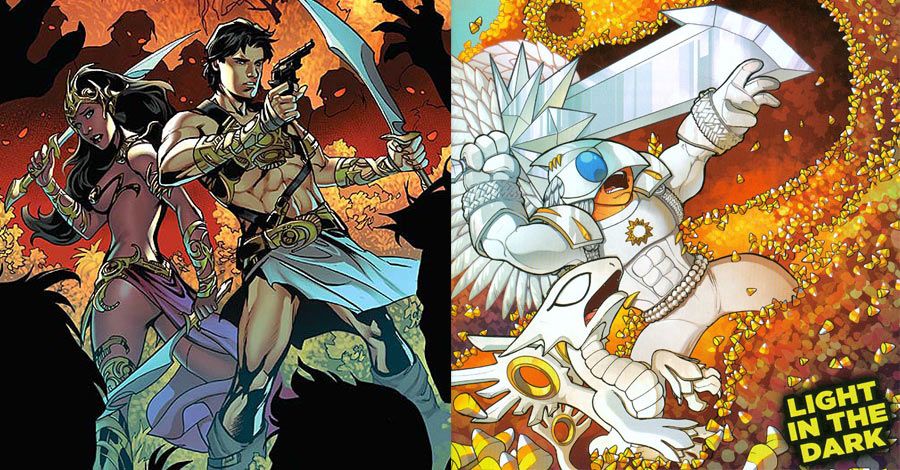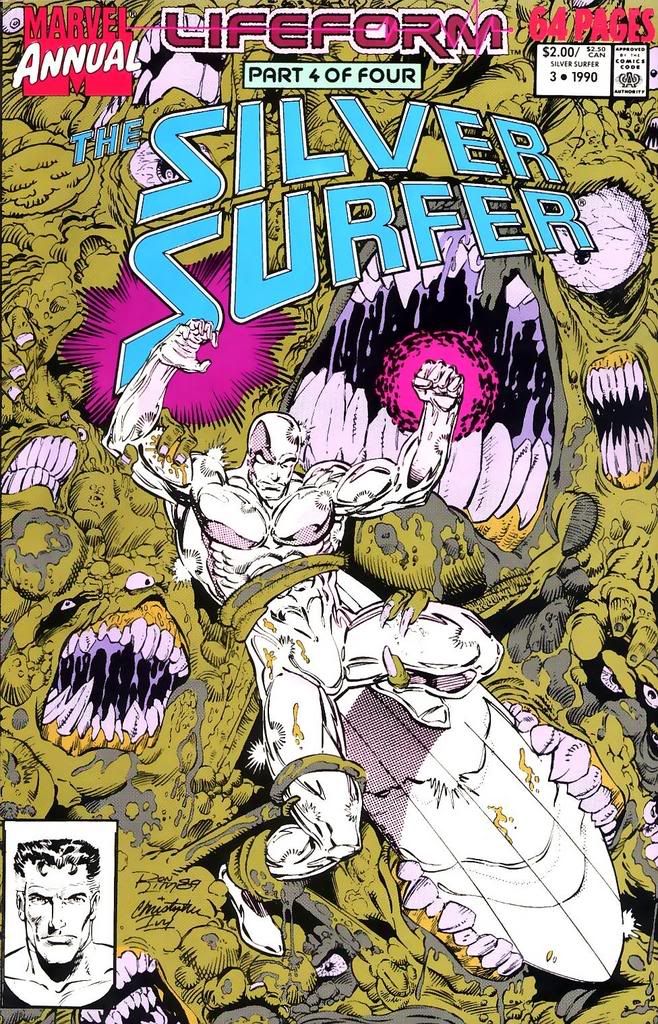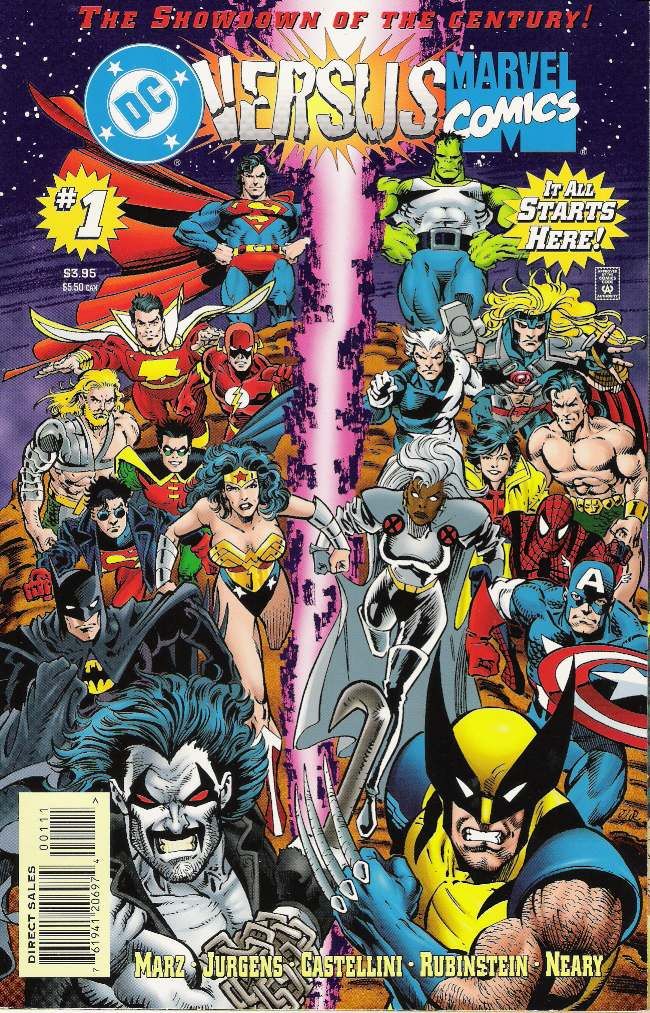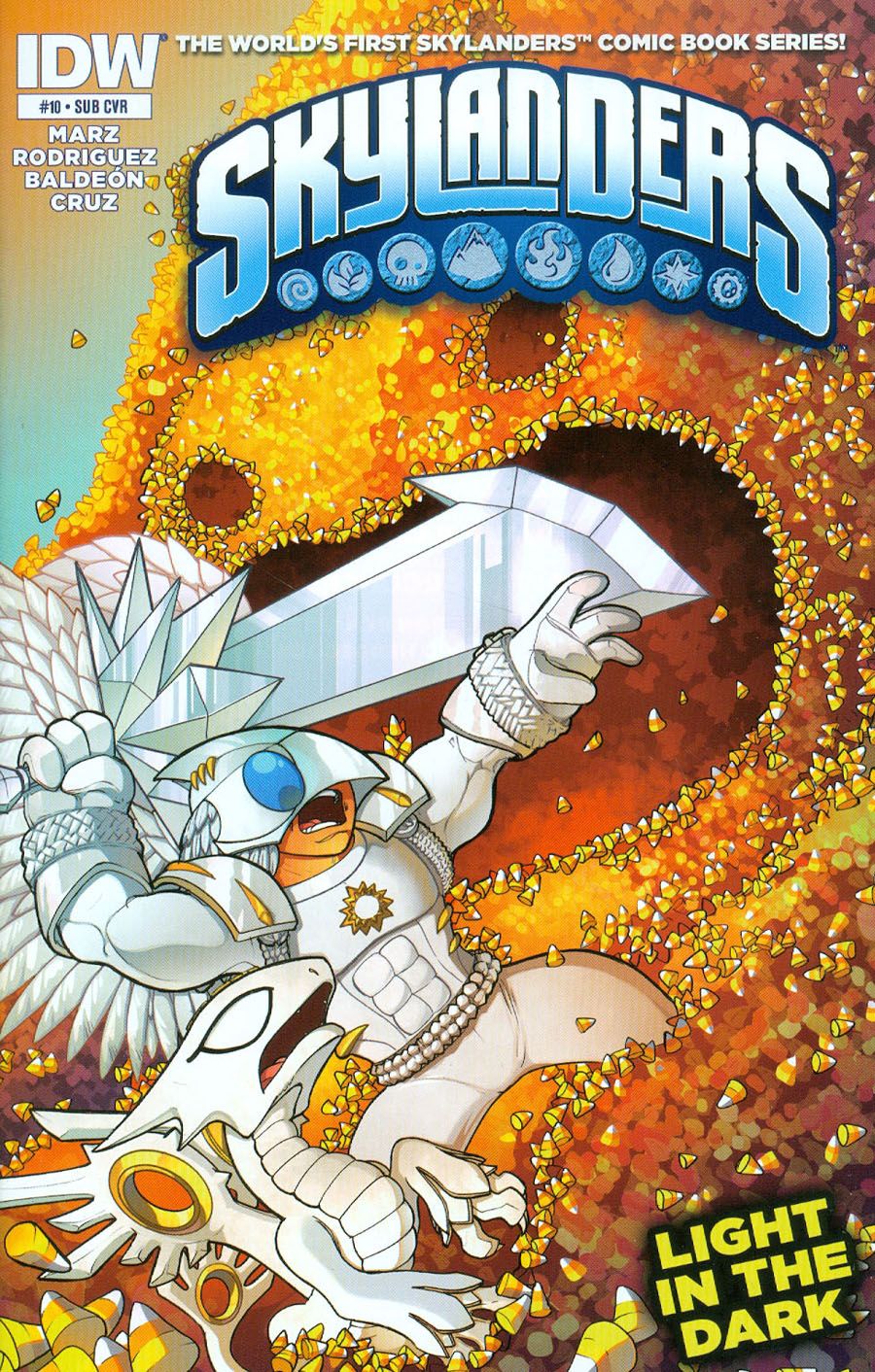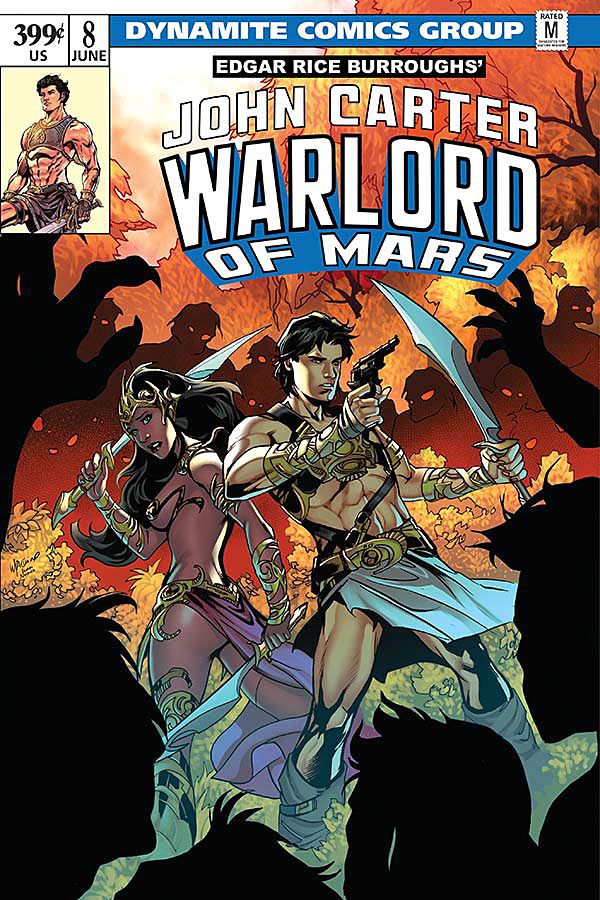Co-Signing for Co-Writing
I haven't been much of a co-writer throughout my career. That's a bit ironic, I suppose, considering my career started with me co-writing some "Silver Surfer" issues with Jim Starlin. But after just a few issues, I was flying solo on scripts, and that's the way I've written virtually everything in my career.
Creating comics is a collaborative process, with the writer, artist (or artists), colorist, letterer and editor all doing their bit to create a greater whole. I've likened it to playing jazz with a small group, the musicians maintaining their individual skills, but all playing off one another to make something none of them could do solo. But beyond that greater collaboration, I've never been to keen on splitting the writing duties. Certainly there's give and take with editorial. Sometimes there's a lot more give, when editorial hands down a storyline or direction. But when it comes to story, and especially the nuts and bolts of plot and dialogue, it's mostly been my way or the highway. A writer gets to play God, and that's a powerful allure. When at all possible, it's my story, for better or worse.
So I've done very little co-writing in my career. One exception is "Marvel vs. DC," which I co-wrote with Peter David. In that case, we wrote alternating issues, though obviously we were both working from an agreed-upon outline. I think my issues have more of my voice, while Peter's obviously have more of his. We actually did produce an issue #1 script where Peter and I alternated writing eight-page segments, but no one was overly pleased with the result. We set it aside as an unworkable method.
But I find myself co-writing two monthly titles right now: "Skylanders" for IDW, based on the video game franchise, with Dave Rodriguez; and Dynamite's "John Carter: Warlord of Mars" with Ian Edginton. Both have been pretty great experiences, especially the process of kicking a story idea back and forth to hone it. When you write solo, you're left to your own devices, staring at the wall or the sky or the computer screen as you search for inspiration. Co-writing give you a sound boarding that can jumpstart the process, as well as a partner to share the workload and balance schedule demands.
I've written about the genesis of the "Skylanders" assignment previously, how my work on the video game led to the offer from IDW. Dave and I have been co-writing from the beginning, which has allowed is to produce almost two dozen issues worth of scripts in a little more than a year. Dave's knowledge of the Skylanders and their world has been as valuable as his writing skills. His day job is Narrative and Story Lead at Activision subsidiary Vicarious Visions, which produces "Skylanders" games. We've been able to mine the breadth and depth of the Skylanders universe, including characters and concepts that won't be fully revealed until the forthcoming "SuperChargers" game.
Ian and I have been co-writing "John Carter" only since issue #8, when I invited Ian to join me on the team so we could get the book caught up on schedule. I've been friends with Ian for years -- I'm not sure either of us even remembers how we met -- and an admirer of his work even longer than that. The Eisner-nominated, post-"War of the Worlds" tales "The Great Game" and "Scarlet Traces" are among my favorites. Ian's "2000 A.D." work is grand as well, including the recently-collected "Brass Sun," as well as "Stickleback" and "Leviathan."
Ian even beat me to writing John Carter, having adapted "A Princess of Mars" with artist I.N.J. Culbard for Self Made Hero (along with a number of sterling Sherlock Holmes adaptations). Our influences and story sensibilities are much the same, and we'd been talking about working on something together for at least a decade. "John Carter" presented the opportunity, and Dynamite quickly agreed to Ian coming on board.
On both "John Carter" and "Skylanders," the work process involves one of us taking the lead on a story, whoever came up with the initial concept. We discuss the story points, roughing out the idea and whatever details present themselves. With Dave, it usually involves meeting for coffee at Starbucks, or dinner at a sushi restaurant or Brazilian steakhouse. For Ian, who lives in England, it means Skype and e-mails (though I did get to buy him a burger and a beer when I was in London in March).
Whoever takes the lead then writes the first draft of the script, and shares it with the other writer. After whatever tweaks are needed, and a second draft is finalized, the script is turned in.
Once the art is drawn, I always take a pass through the final dialogue on any issue, no matter who wrote the first draft. I'm still enough of a control freak that I insist on polishing all the dialogue before it sees print. Hopefully the finished book is a product of both writers, a bit different flavor than any of us could deliver separately.
I ride shotgun on "Ravine," the original graphic novels that I work on with Stjepan Sejic for Top Cow/Image, helping Stjepan hone the story he wants to tell. I'm also co-writing some projects with Andy Lanning for the still-mysterious Magic Leap, but those will be under wraps for a while longer. Those stories, just like "John Carter" and "Skylanders," have been a pleasure to work on precisely because of the collaborative nature.
I've been doing this long enough that I'm no longer concerned about establishing my voice or my credentials like I might have been earlier in my career. Short version: a healthy dose of ego, a sense that I wanted to do it myself, so I could show exactly what I could do by myself. That probably kept me from embracing co-writing in the past, and certainly there's a financial aspect to be considered as well. But now I'm happy working on stories that I like, with people that I like, whether it's co-writing or solo.
I could never give up writing solo. When push comes to shove, that's still my favored working method, especially on creator-owned material. But I've come around to thinking that when the job is right, I like having another writer along for the ride.
Ron Marz has been writing comics for two decades, and thinks it's pretty much the best job ever. His current work includes "Witchblade" and the graphic novel series "Ravine" for Top Cow, "The Protectors" for Athleta Comics, his creator-owned title, "Shinku," for Image, and Sunday-style strips "The Mucker" and "Korak" for Edgar Rice Burroughs, Inc. Follow him on Twitter (@ronmarz) and his website, www.ronmarz.com.

